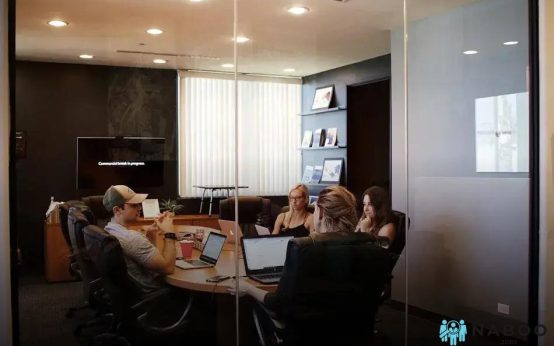Discover how mindfulness and meditation for professionals can transform your work life. In this post, we’ll explore essential tips and practices to incorporate mindfulness into your daily routine. From understanding its impact on your productivity to practical meditation exercises, you will learn how to effectively manage stress and enhance focus. Our easy-to-follow guide aims to improve your workplace experience.
Understanding Mindfulness at Work
Mindfulness is a mental state achieved by focusing one’s awareness on the present moment. This practice allows professionals to enhance concentration, manage stress, and improve overall wellbeing. By observing thoughts and feelings without judgment, employees can develop greater emotional intelligence, leading to better decision-making.
At work, mindfulness can promote a calm and focused environment. Team members who practice mindfulness are often more responsive and adaptable, demonstrating improved communication skills. Regular mindfulness practice can also boost creativity, as it clears mental clutter and opens pathways for innovative thinking.
For workplaces considering mindfulness programs, it’s important to tailor approaches to fit the company culture. Workshops or short guided sessions during the day can prove beneficial. Moreover, encouraging a mindful atmosphere can be as simple as allowing frequent breaks or creating quiet zones.
Benefits of Meditation for Busy Professionals
Busy professionals often face high-stakes situations, which can lead to stress and burnout. Meditation offers a range of benefits to help mitigate these challenges. Regular practice can improve focus and concentration, making it easier to deal with multiple tasks. By honing the ability to stay present, professionals can enhance their decision-making skills.
Improve Emotional Well-being
Meditation cultivates a sense of calm, reducing anxiety levels. This emotional balance can lead to increased job satisfaction and overall happiness. Moreover, meditation helps develop patience and resilience, enabling one to handle workplace pressures effectively.
Enhance Creativity and Problem Solving
With a clear and focused mind, meditation encourages creative thinking and the ability to see problems from new perspectives. This aspect is particularly valuable for roles that require innovation and strategic thinking. Regular meditators can access a state of ‘flow,’ where ideas come more naturally.
Build Stronger Work Relationships
Meditation can also improve interpersonal skills. By increasing empathy and understanding, professionals can communicate more effectively and build more substantial, more meaningful relationships with colleagues and clients. These connections can enhance teamwork and collaborative efforts. Lastly, meditation encourages a positive mindset, which is contagious and can improve the workplace atmosphere.
Integrating Mindfulness into Your Daily Routine
Integrating mindfulness into your daily routine can significantly enhance your work mindset, increasing both focus and productivity. Mindfulness involves being present in the moment, acknowledging your thoughts and feelings without judgment. Here are some practical steps to add mindfulness to your everyday tasks.
-
Start Small:
Consider incorporating mindfulness in small, manageable ways. Start your day with a few minutes of deep breathing to set a calm tone for your morning.
-
Mindful Transitions:
Use personal transitions as opportunities for mindfulness. For example, take a moment to breathe deeply and reset when moving between meetings or tasks.
-
Mindful Listening:
During conversations, focus fully on the speaker, which enhances communication and understanding. Pay attention to not just their words, but also their emotions and body language.
-
Mindful Eating:
Incorporate mindfulness during meals by savoring each bite and appreciating flavors, textures, and aromas without distractions such as phones or computers.
-
Mindfulness Breaks:
Schedule short mindfulness breaks during the day. Even a five-minute pause to focus on your breath can recalibrate your mind and reduce stress.
-
Gratitude Practice:
Conclude your day by reflecting on things you’re grateful for, which can shift your mindset to a more positive state.
By embedding these practices into your routine, mindfulness can become a natural part of how you function professionally, enriching both your personal well-being and work environment.
Practical Tips for Meditating at the Office
Meditating at the office might seem challenging, but it’s both possible and beneficial. Here are some practical tips to help you integrate meditation into your workday seamlessly.
Find a Quiet Spot
Identify a space where you can sit quietly, even if it’s only for a few minutes. Whether it’s an unused meeting room or a quiet corner, having a designated spot can help you focus.
Use a Timer
Setting a timer can prevent you from worrying about the passage of time. Use it to focus completely on your breathing or on a guided meditation.
Take Short Breaks throughout the day to practice deep breathing. Even a two-minute meditation can help reduce stress and refocus your mind.
Consider using a meditation app designed for office use. These apps offer guided sessions tailored for a work environment, perfect for when you need a quick mindfulness boost.
Focus on Your Breathing
Inhale slowly through your nose, hold it for a moment, and exhale deeply. This simple practice can be done at your desk to bring greater calm and clarity.
Avoid distractions by turning off notifications and minimizing browser tabs. This helps create an environment conducive to mindful meditation without interruptions.
Establish a Routine by meditating at the same time each day, whether it’s during lunch breaks or before a big meeting, to make mindfulness a habit.




